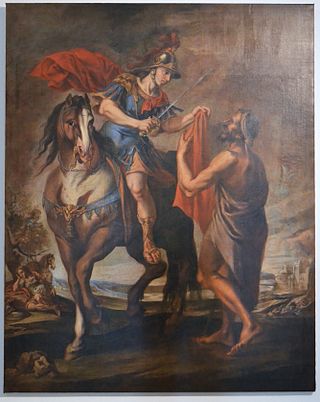Flemming is a surname and a male given name referring, like the more common Fleming , to an inhabitant (or descendant thereof) of Flanders, [1] a region overlapping parts of modern Belgium, France, and the Netherlands. Notable people with the name include:
April 10 is the 100th day of the year in the Gregorian calendar; 265 days remain until the end of the year.
June 9 is the 160th day of the year in the Gregorian calendar; 205 days remain until the end of the year.
June 15 is the 166th day of the year in the Gregorian calendar; 199 days remain until the end of the year.
May 8 is the 128th day of the year in the Gregorian calendar; 237 days remain until the end of the year.
October 5 is the 278th day of the year in the Gregorian calendar; 87 days remain until the end of the year.
September 5 is the 248th day of the year in the Gregorian calendar; 117 days remain until the end of the year.
Neumann is a German surname, with its origins in the pre-7th-century word neowe meaning "new", with mann, meaning man. The English form of the name is Newman. Von Neumann is a variant of the name, and alternative spellings include Neuman, Naumann(s), Numan, Nauman, Neiman, and Nyeman.
The German word Müller means "miller". It is the most common family surname in Germany, Switzerland, and the French départements of Bas-Rhin and Moselle and is the fifth most common surname in Austria. Other forms are Miller and Möller. Of the various family coats of arms that exist, many incorporate milling iconography, such as windmills or watermill wheels.
Ziegler is a common German-language surname meaning "brick-maker" and may refer to the following people:

Kaufmann is a surname with many variants such as Kauffmann, Kaufman, and Kauffman. In German, the name means merchant. It is the cognate of the English Chapman. Kaufmann may refer to:
Delaney is an Irish surname derived from the Gaelic Ó Dubhshláine, Dubh meaning black and Sláine for the River Sláine (Slaney). DeLaney is also of Norman origin. Variants include Delaney, Delany and Dulaney.
Abel can be either a German or English surname. The German variant of the surname is a patronymic name, derived from the Old German personal name Abel, which means "noble one." The German variation does not appear to be derived from the biblical name Abel. The surname is associated with Swabia, in the southwest of Germany.
Gregor is a masculine given name. Notable people and fictional characters with the name include:
Berg is a surname of North-European origin. In several Germanic languages, the word means "mount", "mountain", or "cliff".
Hansen or Hanssen is a Scandinavian patronymic surname, meaning son of Hans. As of 2008, it is the third most common surname in Denmark, shared by 4.3% of the population. As of 2000, Hansen is the single most common surname in Norway, not counting spelling variations such as Hanssen, which are also quite common. In the Faroe Islands Hansen is the second most common surname, while in the North German federal states of Schleswig-Holstein and Hamburg Hansen is the third and fifth most common surname, respectively. In Sweden the parallel form is Hansson. The frequent occurrences of Hansen as a surname outside Denmark, Norway and Schleswig-Holstein is due to immigration, though Nordic immigrants to English-speaking countries often anglicised their names to Hanson in order to accommodate English orthographic rules.

Martin may either be a given name or surname. In Scotland, Martin or McMartin is a common surname of Scottish Gaelic origin. Martin is, however, more common as a masculine given name in many languages and cultures. It comes from the Latin name Martinus, which is a late derived form of the name of the Roman god Mars, protective godhead of the Latins and, therefore, god of war. The meaning is usually rendered in reference to the god as "of Mars" or "of war/warlike" ("martial"). Alternatively, it may also be derived from the Proto-Germanic elements "mar", meaning famous and "tank", meaning thought, counsel.
Lang is a surname of Germanic origin, closely related to Lange, Laing and Long, all of which mean "tall".

Oliver is a masculine given name of Old French and Medieval British origin. The name has been generally associated with the Latin term olivarius, meaning "olive tree planter", or "olive branch bearer" Olive is a symbol of hope, so this name literally means - ''the one who carries hope''. Other proposed origins include the Germanic names *wulfa- "wolf" and *harja- "army"; the Old Norse Óleifr ; a genuinely West Germanic name, perhaps from ala- "all" and wēra "true" ; the Anglo-Saxon Alfhere; and the Greek name Eleutherios.
Potter is an English surname that originally referred to someone who made pottery. It is occasionally used as a given name. People with the name include:
Jäger is a common German surname. It comes from the German word for "hunter". Related surnames in other languages include De Jager, Jääger, Jágr, Yaeger and Yeager.